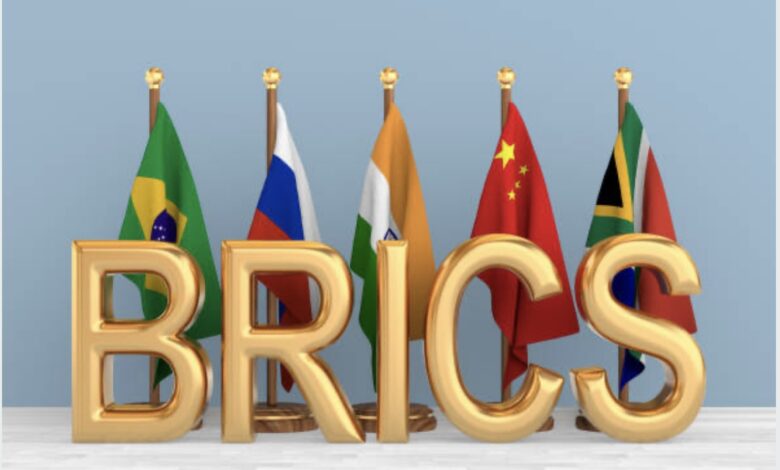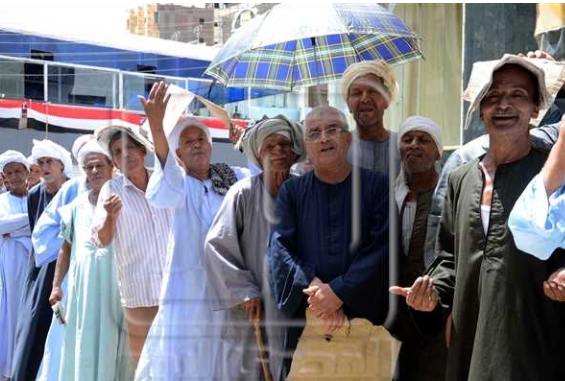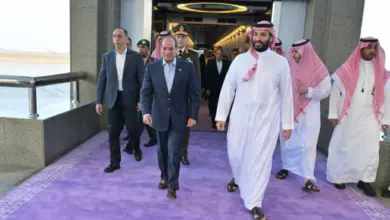
Egyptian Prime Minister Mostafa Madbouly is participating in the BRICS (Brazil, Russia, India, China, South Africa) summit in Johannesburg, South Africa, a move analysts consider to be hammering the nail in the coffin of the US dollar in Egypt.
Madbouly is scheduled to deliver Egypt’s speech at the high-level dialogue session on Thursday and is expected to participate in other sessions, in addition to holding meetings with a number of representatives of companies.
The BRICS group leaders, which includes five emerging economies, will during the summit in South Africa uphold expanding the alliance and annexing new countries, according to a researcher in international relations and political economy and advisor to the Arab Center for Studies Abu Bakr al-Deeb, said.
He expects that the bloc will become a geopolitical alternative to the “G7”.
This summit is the beginning of a journey to abandon the US dollar in global commercial transactions, he explained.
Deeb added that many countries are seeking to join the BRICS group to take advantage of the economic and political advantages it offers, such as new markets and investments.
“We are on the cusp of a multipolar world and 23 countries have so far submitted applications out of more than 40 willing countries to join the BRICS group,” he said.
Deeb explained that among the countries that formally requested accession were the UAE, Egypt, Algeria, Argentina, Bahrain, Bangladesh, Belarus, Bolivia, Cuba, Ethiopia, Honduras, Indonesia, Iran, Kazakhstan, Kuwait, Morocco, Nigeria, Palestine, Saudi Arabia, Senegal, Thailand, Venezuela and Vietnam.
He referred to very important statements made by Russian President Vladimir Putin wherein he stressed that abandoning the dollar is irreversible, and that the group aims at economic development and increasing the voice of its members in global forums.
The BRICS held its first summit in 2009 with four members, then added South Africa in the following year, before launching the New Development Bank in 2015 to include other countries.
According to the official platform of the 15th BRICS Summit, and given the growing interests, the founding members are ready to expand members, to called the “BRICS+”, similar to the “OPEC+” group.
He emphasized that the group’s production represents US$56.65 trillion of global output, and it accounts for 40 percent of the world’s population and occupies 26 percent of the global economy.
The group has succeeded in establishing a new bank, he said, and endeavors to launch a unified currency, adding that Africa will be the most prominent beneficiary of this bloc.
Deeb referred to statements by Brazilian President, Lula da Silva saying that the BRICS group has outperformed the G7 economically, and that the presence of three BRICS members in the G20 defends the interests of the southern countries.
Chinese President Xi Jinping also supported the expansion of the BRICS group in a speech delivered on his behalf by one of his ministers at the BRICS business forum in Johannesburg, on Tuesday.
The head of the Egyptian Council for Foreign Affairs, Mohamed al-Orabi, stated earlier that Cairo plans to request joining the BRICS at the current summit of the group and is counting on Russia for support.
Data from the Central Agency for Public Mobilization and Statistics (CAPMAS) showed an increase in the value of Egyptian exports to BRICS countries to $4.9 billion in 2022, compared to $4.6 billion in 2021.
The value of Egyptian imports from BRICS countries amounted to $26.4 billion in 2022, compared to $23.6 billion in 2021.
CAPMAS data also showed an increase in the value of trade exchange between Egypt and the BRICS countries, reaching $31.2 billion in 2022, compared to $28.3 billion in 2021, an increase of 10.5 percent.




